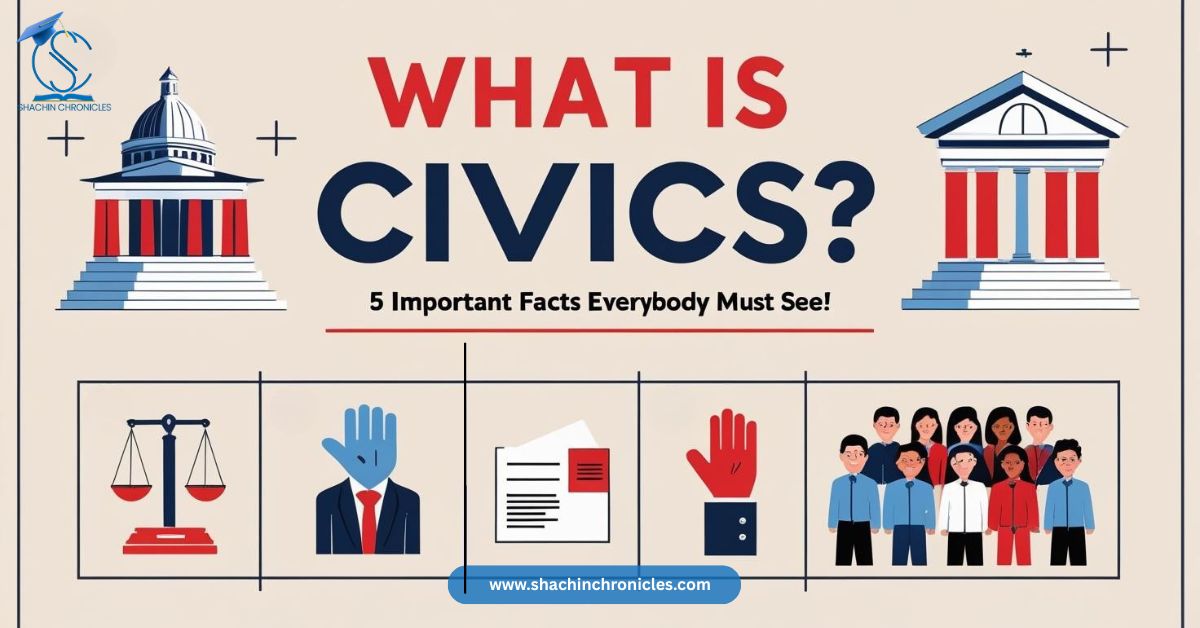What Is Civics? An Easy Terms
Civics is the study of in what way government works, the human rights and responsibilities of citizens, and how people contribute to society. It facilitates us understanding how laws are to be made, how leaders are selected, and how we can be contributing members of our societies.
In this blog, we will get to know about civics in simple terms, which includes:
- What Is Civics?
- Why Is Civics Important?
- Civics Key Concepts
- How to Be an Active Citizen
- Civics in Everyday Life
Let’s get started!
-
What Is Civics?
Civics is the exploration of:
- Government – In what way do local, state, and national governments function.
- Citizenship – The awareness regarding human rights and duties of citizens.
- Democracy – How communities have a about in their government management.
- Laws and Policies – How guidelines are formed and required.
Envision civics as a guide to being an accountable and knowledgeable member of communities.
-
Why Is Civics Important?
Awareness of civics guides people:
- Make informed decisions (like voting wisely).
- Know their rights (such as free speech and fair treatment).
- Hold leaders accountable (by staying informed and speaking up).
- Better their communities (via volunteering and engagement).
Without civics, the public might not recognize how to contribute to democracy or protect their human rights.
-
Civics Key Concepts
Types of Government
Various countries have different government systems:
- Democracy – Citizens vote for leaders (such as, USA, India).
- Monarchy – A king or queen rules (such as, UK, Saudi Arabia).
- Dictatorship – One person has total control (such as North Korea).
- Republic – Leaders are elected but follow a constitution (such as France, Germany).
Divisions of Government
Most democracies consist of three branches:
- Legislative – Create laws (such as Congress, Parliament).
- Executive – Enforces laws (such as, President, Prime Minister).
- Judicial – Clarify laws (such as, Supreme Court).
Prevent any one branch from taking excessive authority from these divisions of government.
Civil Rights and Duties of Citizens
- Rights:
- Right to freedom of religion, speech, and the press.
- Right to an impartial trial.
- Right to vote.
- Duties:
- Obeying laws.
- Paying taxes.
- Serving on a jury if called.
- Voting in elections.
How Laws Are Created
- A bill (which means a proposed law) is introduced.
- Politicians debate and vote on it.
- The executive leader signs it into law, if they voted for.
- The law follows the Constitution ensure by Courts.
Elections and Voting
Voting agreements citizens elect leaders and influence policies. Key terms:
- Primary Elections – Picking party candidates.
- General Elections – Deciding the final winner.
- Electoral College – (In the U.S.) A system for electing the president.
-
IN WHAT WAY TO BE AN ACTIVE CITIZEN
You don’t have to be a legislator to make a difference. Here is in what way:
Stay Knowledgeable
- Follow honest news sources.
- Learn about current matters or issues.
- Fact-check before sharing information.
Vote in Elections
- The most powerful way to influence the government is to vote.
Contact Your Representatives
- Issues you care about inform via call, email, or write about them to leaders.
Join Community Efforts
- Be present at town hall conferences.
- Volunteer for local reasons.
- Support charitable organizations.
Respect Others’ Opinions
- Even when we disagree for a healthy democracy requires listening.
-
Civics in Everyday Life
Civics is not all about politics, but it also impacts our everyday life, like:
- Paying taxes for funding universities or schools, infrastructure, and hospitals.
- Following traffic laws to keep everyone safe.
- Reporting crimes helps to maintain justice.
- Jury duty ensures that all implemented trials are fair.
Recycling or helping neighbors, even these small actions, contribute to a better society.
Final Thoughts
Civics explains to us in what way the government works and in what way we can form our societies. Being aware of human rights, responsibilities, duties, and how laws are created, we turn out to be better residents.
Everybody can play a part in democracy, whether it’s voting, coming forward, or just keeping informed.

